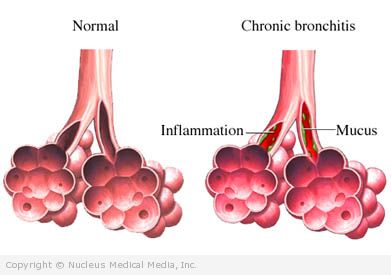Cough – Definition
A cough is a sudden expulsion of air from the lungs. Its purpose is usually to clear secretions and inhaled foreign substances from the lungs and respiratory tract.
There are different types of cough:
- Acute cough — lasts for less than three weeks
- Subacute cough — lasts 3-8 weeks
- Chronic cough — lasts longer than eight weeks
Cough – Causes
An acute cough is usually caused by an infection, such as a cold or flu. In some cases, an acute cough can be the sign of other conditions, such as:
- Exposure to an irritant or an allergen
- Aspiration of a foreign body
- Bronchitis
- Pneumonia
Subacute cough is often a cough that follows a respiratory infection. It can also be caused be exposure to irritants or to anything that can cause chronic cough.
A chronic cough can be caused by many factors. Common examples include:
- Chronic obstructive pulmonary disease (COPD) (eg, chronic bronchitis, emphysema)
- Asthma
- Reflux of acid from the stomach into the throat (gastroesophageal reflux disease [GERD])
- Postnasal drip, which may be due to:
- Repeated inhalation of environmental irritants
- Sinus inflammation
- Allergies
- Bronchiectasis (a less common cause)
- Certain medicines (eg, ACE inhibitors)
Cough – Risk Factors
The main risk factor for cough is being exposed to irritants, for example:
- Tobacco smoke
- Noxious fumes
- Allergens, such as pollen and dust
- Smog and other environmental pollutants
Smoking is a major risk for serious conditions linked to chronic cough, including lung cancer and COPD.
Cough – Symptoms
A cough can be a symptom of an underlying condition.
Coughs can be productive or dry. You may find that your cough is worse when waking up and during the night while lying down.
When Should I Call My Doctor?
Call your doctor if you have:
- Acute cough that worsens or does not go away on its own
- Chronic cough
- Signs of an infection (eg, fever, chills)
- Cough with wheezing
- Blood in the sputum
When Should I Call for Medical Help Immediately?
Call for medical help or go to the emergency room right away if your cough is accompanied by:
- Pink or frothy sputum
- Trouble breathing
- Chest pain
- Rapid heartbeat
- Swelling in the legs
Cough – Diagnosis
The doctor will ask about your symptoms and medical history, and perform a physical exam.
Acute cough is usually diagnosed by its accompanying symptoms.
During the diagnosis, your doctor will look for symptoms that suggest an underlying cause. Tests may include:
- Chest x-rays — a test that uses radiation to take a picture of structures inside of the chest
- Computed tomography (CT) scan of the chest — a type of x-ray that uses a computer to create images of structures inside of the chest
- Analysis of a sputum sample
- Blood test to check for infection
- Skin tests if allergies are suspected
- Skin test for tuberculosis
- Pulmonary function tests — to measure lung volumes and air flow rates
- Bronchoscopy — insertion of a long, thin instrument to view the interior of the airways and collect samples
Cough – Treatment
The best treatment for a cough is to treat the underlying condition.
Medication
There are many over-the-counter (OTC) cough and cold products available. Examples include decongestants, expectorants, antihistamines, and antitussives (cough suppressants).
Note: The Food and Drug Administration (FDA) recommends against using OTC cough and cold products to treat infants and children younger than four years old. Rare but serious side effects have been reported, including death, convulsions, and rapid heart rate.
Lifestyle Changes
Consider putting a steam vaporizer or cool-mist humidifier in your room. This type of moisture therapy may help to make secretions looser and easier to cough up.
If you smoke, talk to your doctor about strategies to quit. Smoking affects your lung function and increases your risk of many diseases.
If you are diagnosed with a cough, follow your doctor’s instructions.
Cough – Prevention
To help avoid a cough:
- Be a nonsmoker.
- Get proper treatment for the underlying condition.
- When working in areas where noxious fumes or airborne substances are present:
- Be sure the area is properly ventilated.
- Wear a protective mask or respirator.

